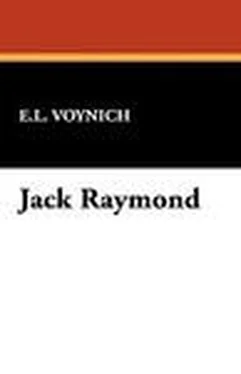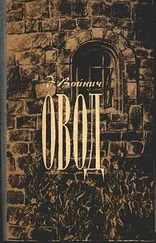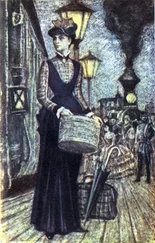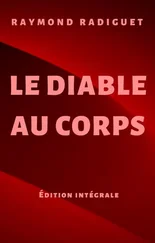Этель Лилиан Войнич - Jack Raymond
Здесь есть возможность читать онлайн «Этель Лилиан Войнич - Jack Raymond» весь текст электронной книги совершенно бесплатно (целиком полную версию без сокращений). В некоторых случаях можно слушать аудио, скачать через торрент в формате fb2 и присутствует краткое содержание. Жанр: Классическая проза, на английском языке. Описание произведения, (предисловие) а так же отзывы посетителей доступны на портале библиотеки ЛибКат.
- Название:Jack Raymond
- Автор:
- Жанр:
- Год:неизвестен
- ISBN:нет данных
- Рейтинг книги:3 / 5. Голосов: 1
-
Избранное:Добавить в избранное
- Отзывы:
-
Ваша оценка:
- 60
- 1
- 2
- 3
- 4
- 5
Jack Raymond: краткое содержание, описание и аннотация
Предлагаем к чтению аннотацию, описание, краткое содержание или предисловие (зависит от того, что написал сам автор книги «Jack Raymond»). Если вы не нашли необходимую информацию о книге — напишите в комментариях, мы постараемся отыскать её.
Jack Raymond — читать онлайн бесплатно полную книгу (весь текст) целиком
Ниже представлен текст книги, разбитый по страницам. Система сохранения места последней прочитанной страницы, позволяет с удобством читать онлайн бесплатно книгу «Jack Raymond», без необходимости каждый раз заново искать на чём Вы остановились. Поставьте закладку, и сможете в любой момент перейти на страницу, на которой закончили чтение.
Интервал:
Закладка:
If it had crossed her mind that the boy was lonely and miserable she would have been sincerely horrified; merely to read in the parish magazine of an ill-used child was enough to make her cry; and, timid as she was, she had often risked the displeasure of her god on earth by trying to beg Jack off from various punishments. Had he ever tried to beg himself off, she would have liked him better; his hard indifference repelled her. She herself, though a most conscientious woman, had once even stepped a little aside from the exact truth to screen him from the Vicar's anger. She had been found out, of course; for Jack, when asked about the matter, had told the truth at once. The worst of it was that his habit of acknowledging his misdeeds appeared to be the result of sheer bravado, not of any love for veracity; for he had no scruples about telling any number of falsehoods when it suited his purpose to do so. But he never prevaricated; when he told a lie, he did it deliberately, with a straight look between the eyes; and that, again, Aunt Sarah could not understand. So beyond much gentle moralising, pathetically futile, her vicarious motherhood, in his case, could not go. She lavished all her affection on Molly, whose evil tendencies, if they were there at all, were still hidden in the mists of babyhood; and left Jack to struggle with a bitter heart as best he might.
He was not envious because his sister was preferred before him. In a certain stiff, shy way of his own he was fond of the child. But they had not much in common. She was not only little, and a girl, — he might have forgiven these defects, — she was also "good." She sat on people's laps, and shut the door after her, and was kissed and praised, and had sweets given her by visitors, who liked to stroke her pretty hair. Jack wondered sometimes how the caresses didn't make her sick, and why she didn't cut the hair off with Aunt Sarah's scissors and throw it in the people's faces. He would have dragged his out by the roots if any one had "pawed it about" that way.
The only human creatures whom he recognised as having any moral claim upon him were the larrikins to whom, for nearly two years now, he had been leader. His ethical code was barbaric and primitive; it never occurred to him to think that he was doing anything mean or unworthy in breaking people's windows, looting their apples, or wantonly damaging their kitchen gardens; nor did he think it necessary to consult at all the personal wishes of his subjects; he was the master, and his will was law; but to abandon his boys in a crisis, or allow one of them to take a caning which he could by any manoeuvring have transferred to his own shoulders, would have seemed to him a monstrous thing. His tiny kingdom was an absolute despotism; in his eyes the whole duty of a subject consisted in obedience, that of a ruler in loyalty; he was splendidly loyal to his boys, but he despised them in his heart.
From human society, great and small, he came back always with relief to furred or feathered creatures, to cliffs and moor and sea. The puppies and the rabbits, the village dogs and cats, all knew a side of him which the Vicar had never seen. Even the lesser humans to whom he extended his protection never saw quite the real Jack; with Billy Greggs he was scornfully tolerant, with Molly condescendingly good-natured; with animals, especially if they were small and helpless, he could be full of tender loving-kindness.
But the best that was in him was known only to Spotty. She was the old brown dog in the stable yard; a sorry specimen truly, and, except for Jack, without a friend in the world. In her best days she had not been much to look at; a hopeless mongrel, bob-tailed and bandy-legged, with a white patch over one ragged ear. Now in her old age she had gone blind, and was no longer of any use as a watch-dog. It would have been kinder to have her chloroformed; she was growing too feeble to take exercise and keep healthy, and was becoming a burden to herself and an object of disgust to others. But Mrs. Raymond disliked the idea of killing anything; and the Vicar was too just a man to turn out a faithful servant because she was past her work; so Spotty remained in the yard, well fed and housed, and tolerated as aged paupers are tolerated.
On this old, ugly, miserable creature, whom death had passed by and forgotten, was showered all the hidden gold of Jack's affection. He never forgot to wash and comb her, or to soak her biscuits carefully, and never forgave any one who laughed at her infirmities. Under his indifference and callousness lay a dumb, fierce, hot resentment against the injustice of men and things. No one was ever fair to Spotty, because she had grown old and blind; as if that in itself were not unfair enough. No one was ever fair to him, because he was born ugly and wicked; and he could no more help that than Spotty could help being blind. Their common wrong was a bond between them; and it was Spotty alone who knew his secret.
For Jack had one secret; only one, and that so simple and so plainly written in his face that anybody could have read it who had looked at him with unprejudiced eyes. But there were no such eyes at the Vicarage; and his secret remained unread. It was that he was unhappy. He had never acknowledged it to himself, and would have been amazed and indignant had any one suggested it; but it was true, nevertheless. Though in some ways, especially impish ways, he got a fair amount of enjoyment out of life, there was always behind his pleasures a dull aching, as of emptiness that nothing could fill. To be glad when night came because another day was over; to hide every little hurt and grief away for fear some one should find it out; to have his hand against every man and every man's hand — often so heavy — against him, seemed to him a matter of course; if he thought about it all, he thought only that the world was stupidly managed somehow, and that it was no use to worry, because one couldn't make things any better.
It was this secret hunger of the soul that had driven him to seek his loves outside of human companionship. The bleak grey Cornish moorland was a tenderer mother to him than Aunt Sarah, with all her kindly heart, had ever been. On his worst days, when mischief failed to help and even fighting could not cure the aching restlessness within him, he would slip away and wander on the cliffs alone for hours. Then he would lie down in some still, shadowy gorge or cleft, and bury himself in the wet fern, and find comfort somehow.
So, blind as he was and groping in the dark, he had learned to know and love the healing touch of nature. Then, when the mavis flew away, his eyes were opened, and whereas he was blind, now he saw.
For a long time he sat by the window, looking out; at last he undressed himself in the dark and crept into bed, very grave and subdued. Fortunately there was no one in the world who cared enough about him to look in upon his sleep, as happens sometimes with boys who have mothers; so his pride was safe from any one discovering that he slept with wet eyelashes. He found it out himself, though, in the morning, and was ashamed for a moment. Then he looked out of the window, and forgot to be self-conscious, seeing a new heaven and a new earth.
Then followed glorious days; long days of wonder and rejoicing, radiant with light and song and colour, or veiled in solemn clouds and mystery. Of course there were the usual annoyances; church on Sunday, school on week-days, family prayers and Bible-readings, Aunt Sarah and Uncle Josiah. But these disturbances, after all, were temporary and unimportant; he had never realised before
how few of the twenty-four hours they filled, how wide and wonderful were those remaining. Sunday passed, and Monday, Tuesday, Wednesday; and the first rapture of his awakening still encircled him about; since Saturday he had not fought or quarrelled, had played no tricks and given no trouble either at home or in school. Four consecutive days without so much as a reprimand were a new record in his life; according to his social traditions and standard of conduct a disgraceful one; but it did not occur to him to think about the matter at all; he was behaving like the "good boys" that he held in contempt, and had not even found it out, so absorbed he was in the joy of life, in splendours of sunlight and starlight, in shining sands and glittering foam.
Читать дальшеИнтервал:
Закладка:
Похожие книги на «Jack Raymond»
Представляем Вашему вниманию похожие книги на «Jack Raymond» списком для выбора. Мы отобрали схожую по названию и смыслу литературу в надежде предоставить читателям больше вариантов отыскать новые, интересные, ещё непрочитанные произведения.
Обсуждение, отзывы о книге «Jack Raymond» и просто собственные мнения читателей. Оставьте ваши комментарии, напишите, что Вы думаете о произведении, его смысле или главных героях. Укажите что конкретно понравилось, а что нет, и почему Вы так считаете.











